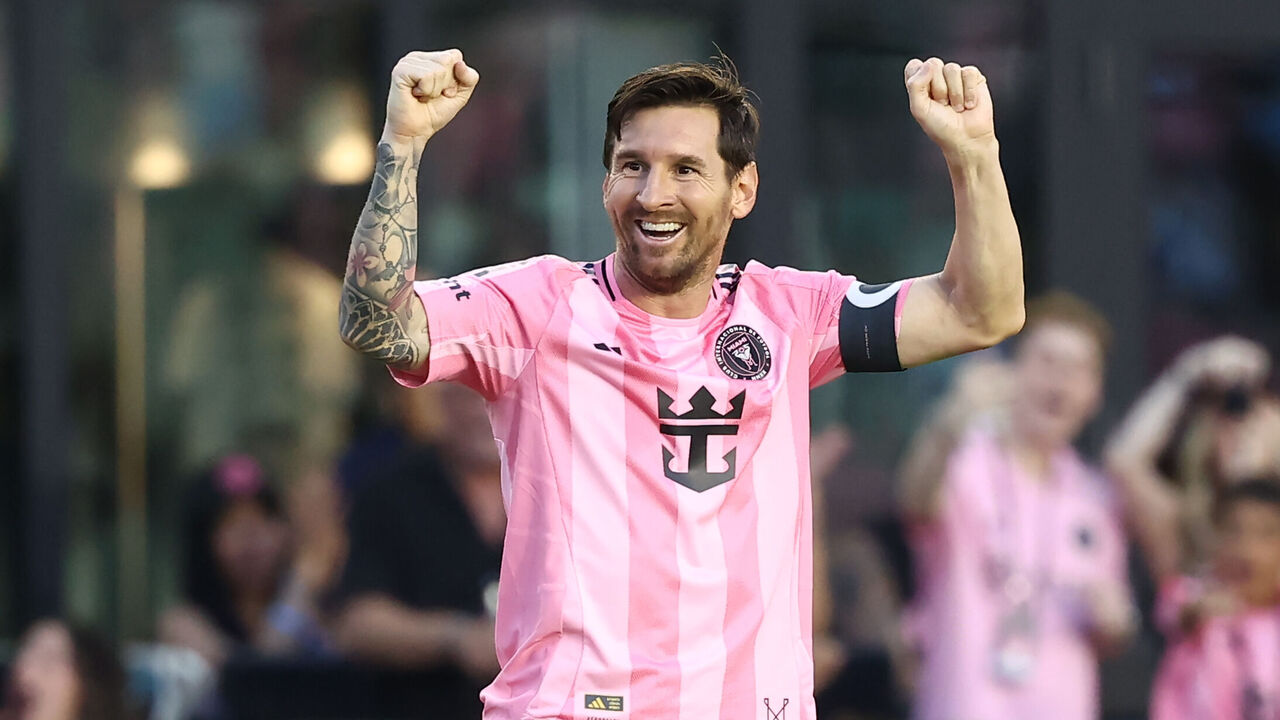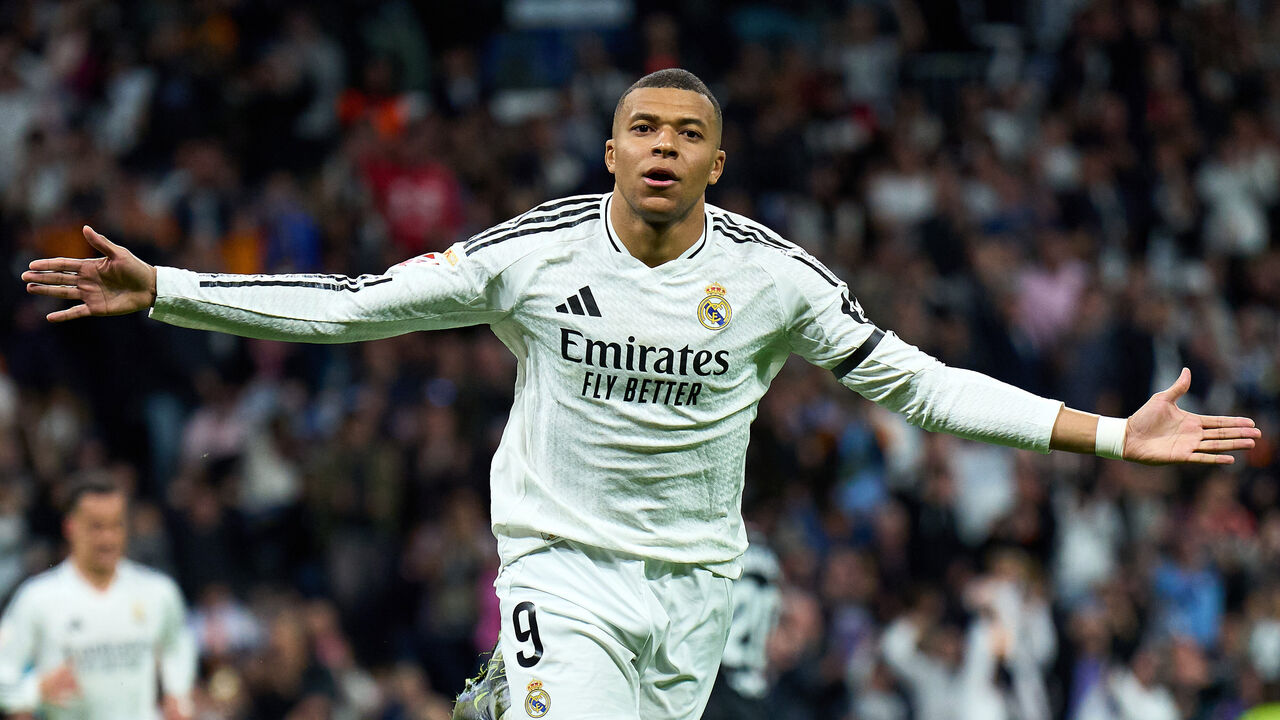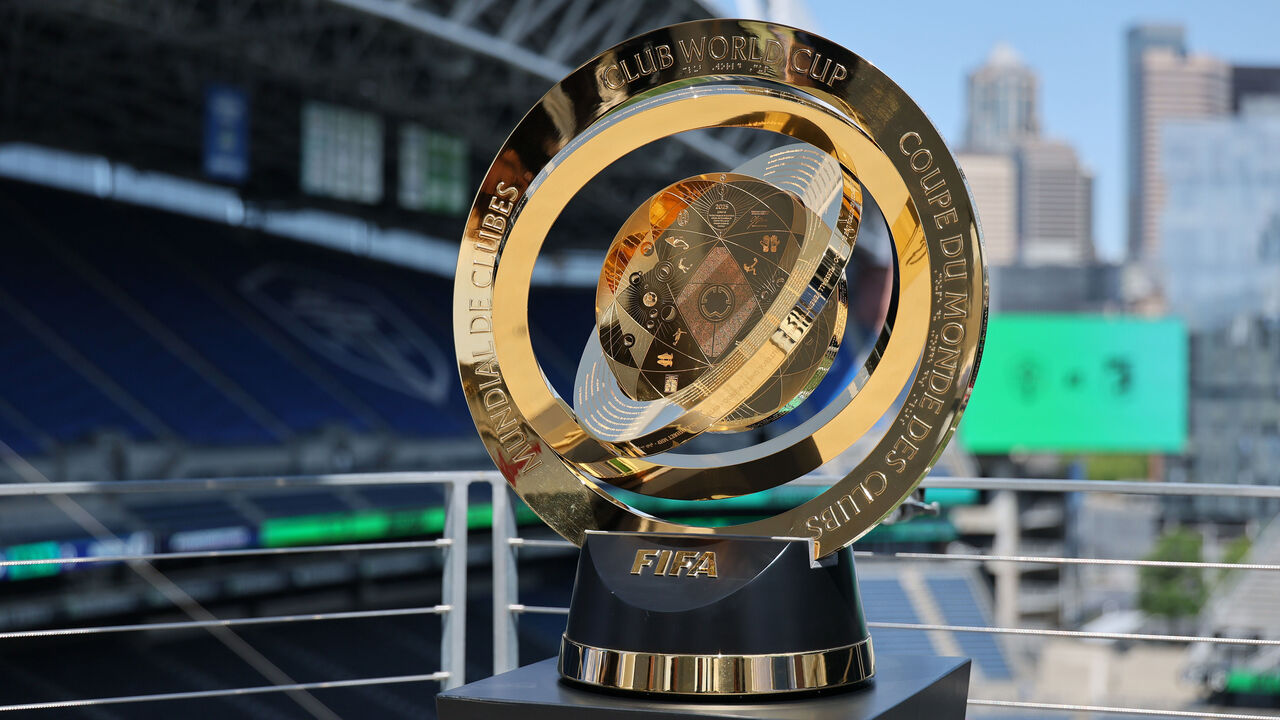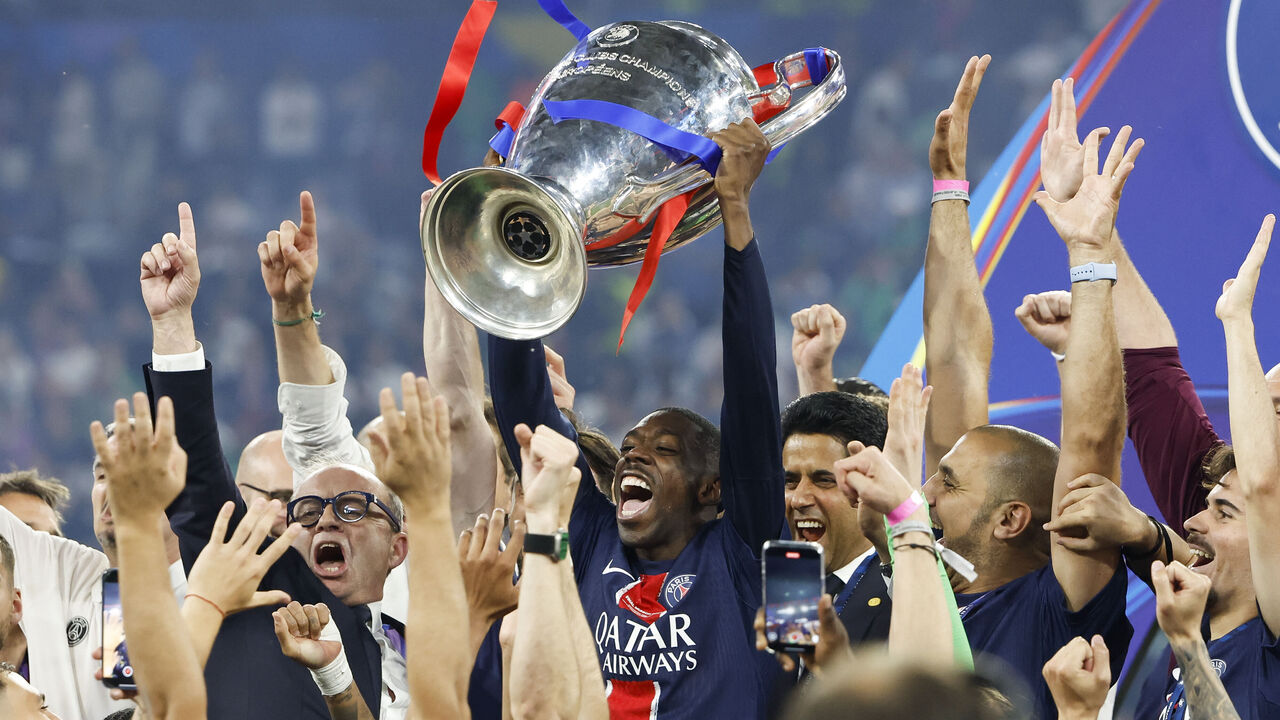Everything you need to know about the FIFA Club World Cup
The new-look FIFA Club World Cup got underway Saturday, with 32 teams from around the globe vying to win the revamped event. Get ready for the tournament with theScore's comprehensive preview package, where we'll answer all your questions and tee up the action in the United States.
What's new about the Club World Cup?
This summer's Club World Cup, championed by FIFA president Gianni Infantino, has been expanded to include 32 teams for the first time. Each of the governing body's six confederations - AFC (Asia), CAF (Africa), CONCACAF (North America and the Caribbean), CONMEBOL (South America), OFC (Oceania), and UEFA (Europe) - will be represented.
Previous iterations of the event took place annually in a central location and featured only seven clubs, with a total of seven matches played in less than two weeks. The most recent edition, contested in 2023 in Saudi Arabia, was won by Manchester City. That old version of the Club World Cup has been rebranded as the FIFA Intercontinental Cup and will continue to run on a yearly basis in the winter; Real Madrid won it last year.
The new Club World Cup, meanwhile, will feature 63 matches staged over 29 days in the United States. The tournament will also shift to a quadrennial schedule, being held every four years as a prelude to the FIFA World Cup; the latter is taking place in the U.S., Canada, and Mexico in 2026.
When does it start?
The tournament began June 14 with Lionel Messi and Inter Miami being held to a goalless draw by Egyptian outfit Al Ahly at Hard Rock Stadium.

The group stage concludes June 26, and the knockout rounds begin two days later. The Club World Cup final is slated for July 13 at MetLife Stadium in East Rutherford, New Jersey.
The full match schedule is available here.
How can I watch?
DAZN, the official global broadcaster of the tournament, will livestream all 63 matches for free, in multiple languages.
Select games will also be carried in English on TNT in the United States, while Univision, TUDN, and ViX will broadcast matches in Spanish in the U.S.
What's the tournament format?
Similar to the old formats of the FIFA World Cup and UEFA Champions League, the 32 teams have been split into eight groups of four.
After the four teams within each group have played against each other once, the respective group winners and runners-up advance to the knockout rounds, while the remaining clubs are eliminated from the competition. The knockout stage - round of 16, quarterfinals, semifinals, and the final - will be composed of one-off matches. If any knockout game is tied after 90 minutes, it will go to extra time (30 minutes), then, if necessary, a penalty shootout to determine who advances.
Who qualified, and how did they get there?
There were two ways to qualify for the Club World Cup. Teams booked their spots by either winning their respective continental title - UEFA Champions League or CONMEBOL Libertadores, for example - in one of the four most-recent seasons, or by having what FIFA described as a "high ranking of performance" in those top-level events over the same four-year cycle.

A maximum of two teams from any single nation can participate, with the exception that continental champions are guaranteed a place in the tournament. As Brazil has dominated South American soccer in recent years - four different Brazilian teams have won the Libertadores in the past four years - it has four teams in the Club World Cup.
Once the two-team limit was hit for any given country, other teams from that country could not qualify via the performance ranking route. That's why Premier League champions Liverpool, for instance, are absent despite being ranked eighth by FIFA's coefficient system; Manchester City and Chelsea grabbed England's two places because they've won the Champions League more recently than the Reds.
Inter Miami, meanwhile, were granted a special berth reserved for a team from the host nation.
| Club | Country | Qualification |
|---|---|---|
| Chelsea | 🏴 | Champions League (2021) |
| Manchester City | 🏴 | Champions League (2023) |
| Real Madrid | 🇪🇸 | Champions League (2022) |
| Atletico Madrid | 🇪🇸 | 4-year ranking |
| Inter Milan | 🇮🇹 | 4-year ranking |
| Juventus | 🇮🇹 | 4-year ranking |
| Bayern Munich | 🇩🇪 | 4-year ranking |
| Borussia Dortmund | 🇩🇪 | 4-year ranking |
| PSG | 🇫🇷 | 4-year ranking |
| FC Porto | 🇵🇹 | 4-year ranking |
| Benfica | 🇵🇹 | 4-year ranking |
| Red Bull Salzburg | 🇦🇹 | 4-year ranking |
| Palmeiras | 🇧🇷 | Libertadores (2021) |
| Flamengo | 🇧🇷 | Libertadores (2022) |
| Fluminense | 🇧🇷 | Libertadores (2023) |
| Botafogo | 🇧🇷 | Libertadores (2024) |
| River Plate | 🇦🇷 | 4-year ranking |
| Boca Juniors | 🇦🇷 | 4-year ranking |
| Seattle Sounders | 🇺🇸 | Champions Cup (2022) |
| LAFC | 🇺🇸 | Playoff winners |
| Inter Miami | 🇺🇸 | Host nation berth |
| Monterrey | 🇲🇽 | Champions Cup (2021) |
| Pachuca | 🇲🇽 | Champions Cup (2024) |
| Al-Hilal | 🇸🇦 | AFC Champions League (2021) |
| Urawa Red Diamonds | 🇯🇵 | AFC Champions League (2022) |
| Al Ain | 🇦🇪 | AFC Champions League (2024) |
| Ulsan HD | 🇰🇷 | 4-year ranking |
| Al Ahly | 🇪🇬 | CAF Champions League (2021) |
| Wydad AC | 🇲🇦 | CAF Champions League (2022) |
| ES Tunis | 🇹🇳 | 4-year ranking |
| Mamelodi Sundowns | 🇿🇦 | 4-year ranking |
| Auckland City | 🇳🇿 | 4-year ranking |
Club Leon of Mexico were originally set to take part after winning the CONCACAF Champions Cup in 2023 but were ruled ineligible because FIFA doesn't permit multiple teams from the same ownership group to participate; Leon and fellow Mexican squad Pachuca are part of Grupo Pachuca. Leon's place was taken by Los Angeles FC, who beat Club America in a one-off playoff match last month to qualify.
How did the draw unfold?
Group A: Palmeiras, FC Porto, Al Ahly, Inter Miami
Group B: Paris Saint-Germain, Atletico Madrid, Botafogo, Seattle Sounders
Group C: Bayern Munich, Auckland City, Boca Juniors, Benfica
Group D: Flamengo, Esperance Sportive de Tunis, Chelsea, LAFC
Group E: River Plate, Urawa Red Diamonds, Monterrey, Inter Milan
Group F: Fluminense, Borussia Dortmund, Ulsan HD, Mamelodi Sundowns
Group G: Manchester City, Wydad AC, Al Ain, Juventus
Group H: Real Madrid, Al-Hilal, Pachuca, Red Bull Salzburg
Where are the games being played?
The United States is playing host to multiple soccer tournaments this summer, with the Club World Cup and 2025 Gold Cup running concurrently. To avoid any stadium conflicts or crossover, the former is taking place primarily on the East Coast of the country, while the U.S. West Coast handles much of the latter.
Club World Cup matches will take place at the following 12 venues:
| Venue | Location | Capacity |
|---|---|---|
| Rose Bowl Stadium | Pasadena | 88.5K |
| MetLife Stadium | East Rutherford | 82.5K |
| Bank of America Stadium | Charlotte | 75K |
| Mercedes-Benz Stadium | Atlanta | 75K |
| Lincoln Financial Field | Philadelphia | 69K |
| Lumen Field | Seattle | 69K |
| Camping World Stadium | Orlando | 65K |
| Hard Rock Stadium | Miami Gardens | 65K |
| GEODIS Park | Nashville | 30K |
| TQL Stadium | Cincinnati | 26K |
| Inter&Co Stadium | Orlando | 25K |
| Audi Field | Washington | 20K |
What are the teams fighting for?
The total prize pool for the tournament is $1 billion.
Each team is guaranteed to earn between $3.58 million and $38.19 million just for taking part. Additional prize money is awarded as teams advance in the competition; a spot in the final is worth $30 million on its own.
The tournament champions could take home up to $125 million.
FIFA also introduced a new trophy last year for the Club World Cup, designed in collaboration with luxury jeweller Tiffany & Co.

"Boasting a 24-carat gold-plated finish, the FIFA Club World Cup Trophy features intricate laser-engraved inscriptions on both sides, showcasing text and imagery that portray football's rich history," the governing body stated in a release upon revealing the hardware. "The inscriptions include a world map and the names of all 211 FIFA Member Associations and the six confederations, representing the geographical and cultural diversity of the beautiful game."
The winning club will also get to wear a special badge on their shirts for four years - until the next edition of the event - that dubs them "world champions."
What are the biggest storylines?
New faces in new places
In anticipation of this summer's tournament, FIFA opened an extraordinary transfer window so clubs could make signings before heading to the United States. It's open until June 10 and has already resulted in several teams adding fresh faces to their squads; Real Madrid have been the most active so far, landing Trent Alexander-Arnold and Dean Huijsen in time to have the pair available at the Club World Cup.
The biggest unknown remains the status of Cristiano Ronaldo. Infantino recently said there are "discussions with some clubs" about signing the Portuguese legend from Al-Nassr, potentially on a short-term deal, so he could play in the tournament this summer.
Can the underdogs surprise?
UEFA heavyweights such as the aforementioned Real Madrid, Bayern Munich, Manchester City, Inter Milan, and newly minted European kings Paris Saint-Germain will be the overwhelming favorites in this competition, with the strong South American contingent expected to provide a stern test.
But major tournaments have a habit of delivering the unexpected. Can Mamelodi Sundowns, the richest team in Africa, spring a surprise and emerge out of a well-balanced Group F? Egyptian giants Al Ahly, meanwhile, could upset the apple cart on opening night when they take on Messi and Miami. Prolific Al Ahly striker Wessam Abou Ali is precisely the type of player who could earn a big transfer should he perform well on this stage.
Dembele's Ballon d'Or bid

Paris Saint-Germain's emphatic victory over Inter Milan in the Champions League final put Ousmane Dembele in pole position to win the Ballon d'Or, but Lamine Yamal kept himself very much in contention by starring in Spain's 5-4 victory over Dembele's France in the Nations League semifinals. The race remains incredibly tight between the two superstars.
With no major international tournament taking place this summer, and Barcelona not involved in the Club World Cup, the event in the U.S. gives Dembele an extra opportunity to separate himself from the chasing pack in the race for the coveted trophy, which will be awarded in September.
A chance for youngsters to shine
On the back of another grueling campaign, managers of Europe's elite teams, blessed with loaded squads and deep benches, are certain to rotate their lineups in the United States. The likes of Kylian Mbappe, Erling Haaland, Harry Kane, Messi, and Dembele will take the pitch, but with the upcoming domestic season already in mind - or, in Messi's case, the current MLS campaign - coaches will need to be wise about managing minutes.
That creates opportunities that perhaps otherwise wouldn't be available for prodigious young talents to get significant opportunities against high-level opposition. The stars of tomorrow should get chances to shine. Teenagers like Senny Mayulu (PSG), Tyrique George (Chelsea), and Endrick (Real Madrid) have much expected of them in the coming years.
HEADLINES
- Herbert active for MNF vs. Eagles days after hand surgery
- Winter meetings live analysis: Breaking down the biggest rumors
- Morris: Blank still '100% in support' despite Falcons' 4-9 record
- Hall of Fame chair 'not surprised' Bonds, Clemens were denied entry
- IIHF: Smaller ice surface at Olympics 'insignificant'